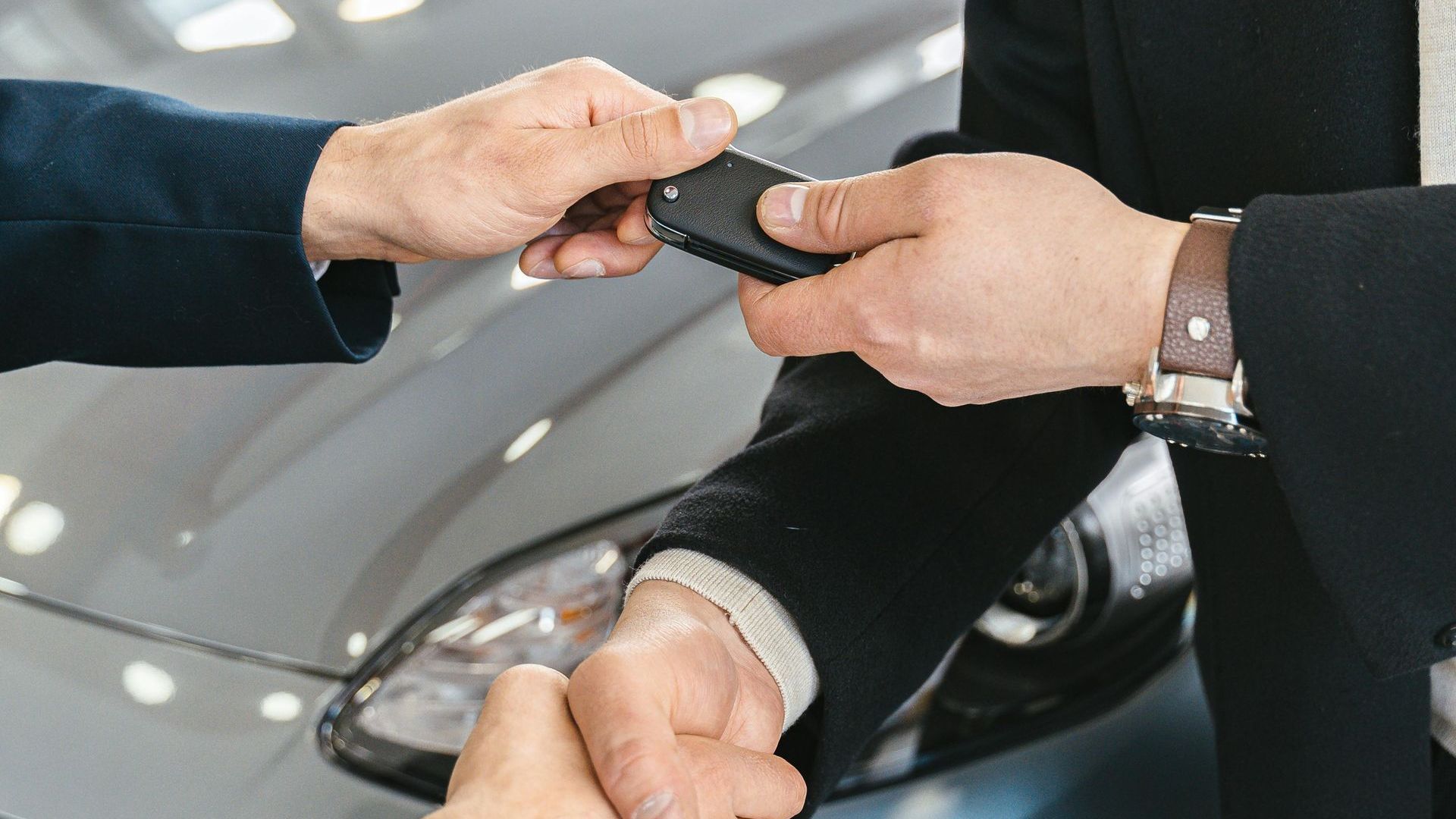How to Get a Good Trade-In Price for Your Car
Ever wondered why the dealer’s trade-in offer for your car feels lower than expected? There's more to it than just negotiation tactics.
March 17, 2025

How to Get a Good Trade-In Price (What Dealers Look At First)
Getting a good trade-in price comes down to understanding how dealers assess risk, costs, and resale value.
Before any negotiation starts, dealers factor in reconditioning, roadworthy requirements, resale demand, and profit margins. The better you understand these factors, the easier it is to protect your car’s value and avoid unnecessary deductions.
Trading in your old car is often the most stressful part of buying a new car. Most car owners choose between selling privately or trading their vehicle directly to the dealer. However, the convenience of a dealer trade-in usually means accepting a lower valuation.
The reality is that dealership trade-in values reflect significant overhead costs associated with running a physical dealership. But trading in doesn't have to mean losing out. This guide explains exactly how dealerships determine the used car trade-in value and offers strategies to help you secure a fair deal.
Understanding the behind-the-scenes factors that influence your car’s trade-in value can put you in the driver's seat during your next dealership visit.
Step-by-Step Guide to Dealer Trade-in Valuations
When you trade in your car, dealers assess it by considering market conditions, costs involved, and expected profits. Typically, a dealer aims to make around $3,000 profit per trade-in to keep their dealership running smoothly. Here's how it works:
Step 1: Initial Inspection & Roadworthy Certificate (RWC)
Firstly, the dealer assesses if your car meets the standards for a Roadworthy Certificate (RWC). If repairs are needed—like replacing tyres, brakes, or windscreen—these costs (usually between $500–$1,500) are deducted from your car's value.
Example: A 2018 Toyota Corolla valued at $20,000 retail might drop to $18,500 if it needs new tyres and brakes to pass RWC.
Step 2: Cosmetic Condition and Detailing Costs
Appearance significantly impacts your car’s value. Dealers factor in detailing costs, typically around $200–$400, to prepare your car for resale.
Example: A dirty 2017 Mazda CX-5 might require $400 in professional detailing and $600 in paint and panel reducing its wholesale value accordingly.
How Dealers Determine the Trade-In Value of Your Car
If you're planning to put your car into trade, it’s important to understand how dealers calculate your trade-in value.
- Market Research: Comparing similar models listed on platforms like Carsales and Gumtree.
- Transport Costs: Often around $200–$400 per car, especially if purchased interstate.
- Staff Wages: Dealerships factor approximately $500–$700 per car to cover employee wages (before commission), including salespeople, mechanics, and administrative staff.
- Advertising Costs: Dealerships allocate roughly $200–$400 per car for advertising.
- Insurance & Taxes: Each car attracts approximately $200–$400 in overhead costs related to insurance and taxes.
Example Breakdown:
| Cost Type | Estimated Cost |
|---|---|
| RWC & Repairs | $800 |
| Detailing | $400 |
| Transport | $300 |
| Wages | $400 |
| Insurance & Tax | $300 |
| Advertising | $400 |
| Total Costs | $2,600 |
| Dealer Profit | $3,000 |
| Total Deduction | $5,600 |
So, if your car's retail value is $25,000, expect a trade-in valuation around $19,500.
How to Get a Good Trade-in Price
- Pre-Trade Detailing: Investing $200–$400 in detailing might save deductions later.
- RWC Ready: Address minor issues yourself to preserve your car’s value.
- Service Records: Presenting detailed service history can boost your trade-in price.
Is Trading-In Worth It?
Trade-ins offer convenience, but dealers have significant expenses. Understanding this helps you negotiate fairly and get a good deal.
When you trade in your car, you're essentially accepting a slightly lower price in exchange for speed and simplicity. You don’t have to photograph your car, list it online, deal with test drives, or wait around for flaky buyers. The dealer handles everything but they also take on the risk, paperwork, and costs of preparing your car for resale.
That includes things like mechanical checks, detailing, roadworthy certificates, auction fees, and warranty obligations. All of that gets factored into the offer. It’s not just about what your car’s worth, it’s about what it’s worth to them after all those expenses.
If your goal is to squeeze every last dollar out of your car, a private sale might make more sense. But if you value your time, want a faster process, or you’re rolling the value straight into your next car, trading in can be a smart move.
Just go in informed. Know your rough market value, be realistic, and don’t be afraid to negotiate. In fact, most dealers expect it.
The Alternative to Trading In?
Selling to a Used Car Buyer
Trading your car to a dealer isn't your only option. Selling directly to a trusted used car buyer can put extra cash in your pocket and save you from hidden dealership costs.
If you prefer simplicity, transparency, and a higher return for your vehicle, explore how easy it can be to sell your car quickly today.

